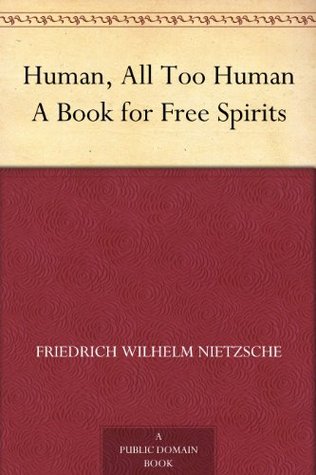More on this book
Community
Kindle Notes & Highlights
there are no eternal facts as there are no absolute truths.
it will not be admitted that all for which men sacrificed life and happiness in former centuries was nothing but delusion:
Falsehood.—Why do men, as a rule, speak the truth in the ordinary affairs of life? Certainly not for the reason that a god has forbidden lying. But because first: it is more convenient, as falsehood entails invention, make-believe and recollection
(wherefore Swift says that whoever invents a lie seldom realises the heavy burden he takes up: he must, namely, for every lie that he tells, insert twenty more).
Victory of Knowledge over Radical Evil.—It proves a material gain to him who would attain knowledge to have had during a considerable period the idea that mankind is a radically bad and perverted thing:
it is a false idea, as is its opposite, but it long held sway and its roots have reached down even to ourselves and our present world.
single, all powerful ambition to know as thoroughly and as fully as possible, will soothe him and moderate all that is strenuous in his circumstances.
he is no longer beguiled by such words as hell-pain, sinfulness, unworthiness: he sees in them merely the flitting shadow pictures of false views of life and of the world.
Ethic as Man's Self-Analysis.—A good author, whose heart is really in his work, wishes that someone would arise and wholly refute him if only thereby his subject be wholly clarified and made plain. The maid in love wishes that she could attest...
This highlight has been truncated due to consecutive passage length restrictions.
beloved. The soldier wishes to sacrifice his life on the field of his fatherland's victory: for in the victory of his fatherland his highest end is attained. The mother gives her child what she deprives herself of—sleep, the best nourishment and, in certain ci...
This highlight has been truncated due to consecutive passage length restrictions.
Promised.—Actions can be promised, but not feelings, for these are involuntary.
Punished.—Our crime against criminals consists in the
fact that we treat them as rascals.
Hope.—Pandora brought the box containing evils and opened it. It was the gift of the gods to men, a gift of most enticing appearance externally and called the "box of happiness." Thereupon all the evils, (living, moving things) flew out: from that time to the present they fly about and do ill to men by day and night. One evil only did not fly out of the box: Pandora shut the lid at the behest of Zeus
and it remained inside. Now man has this box of happiness perpetually in the house and congratulates himself upon the treasure inside of it; it is at his service: he grasps it whenever he is so disposed, for he knows not that the box which Pandora brought was a box of evils. Hence he looks upon the one evil still remaining as the greatest source of happiness—it is hope.—Zeus intended that man, notwithstanding the evils oppressing him, should continue to live and not rid himself of life, but keep on making himself miserable. For this purpose he bestowed hope upon man: it is, in truth, the
...more
Misunderstanding of Virtue.—Whoever has obtained his experience of vice in connection with pleasure as in the case of one with a youth of wild oats behind him, comes to the conclusion that virtue must be connected with self denial. Whoever, on the other hand, has been very much plagued by his passions and vices, longs to find in virtue the rest and peace of the soul. That is why it is possible for two virtuous people to misunderstand one another wholly.
why it is more honorable in an aged man, who feels the decline of his powers, to await slow extinction than to fix a term to his existence himself? Suicide in such a case is a quite natural and due proceeding that ought to command respect as a triumph of reason:
he thinks the rich man must be wholly perverted to take from him the little that he has. But the rich man appreciates the value of a single possession much less because he is accustomed to many possessions, so that he cannot put himself in the place of the poor man and does not act by any means as ill as the latter supposes.
Both have a totally false idea of each other.
Indeed no cruel man is ever as cruel, in the main, as his victim thinks. The idea of pain is never the same as the sensation.
Shame.—Men are not ashamed of obscene thoughts, but they are ashamed when they suspect that obscene thoughts are attributed to them.
Suicide.—There is a justice according to which we may deprive a man of life, but none that permits us to deprive him of death: this is merely cruelty.
Vanity.—We set store by the good opinion of men, first because it is of use to us and next because we wish to give them pleasure (children their parents, pupils their teacher, and well disposed persons all others generally).
Only when the good opinion of men is important to somebody, apart from personal advantage or the desire to give pleasure, do we speak of vanity. In this last case, a man wants to give himself p...
This highlight has been truncated due to consecutive passage length restrictions.


